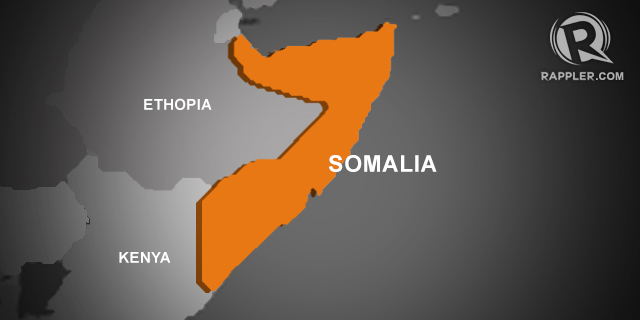SUMMARY
This is AI generated summarization, which may have errors. For context, always refer to the full article.

ADDIS ABABA, Ethiopia – The semi-autonomous Somali state of Jubaland agreed Wednesday, August 28, to ally itself with the national government, in a deal hailed as boosting to efforts to unify the war-torn nation.
The is welcome news for Somalia’s internationally-backed authorities, who have struggled to extend their reach far beyond the capital Mogadishu and are also fighting the Al-Qaeda-inspired Shebab militia.
Jubaland, situated in southern Somalia and bordering Kenya, was one of several breakaway regions of the fractured Horn of Africa nation.
There is also Puntland in the northeast tip of the country which wants autonomy within a federation of states, while Somaliland in the northwest declared total independence in 1991.
The agreement was signed after a week of negotiations in the Ethiopian capital Addis Ababa between Somalia’s state minister, Farah Sheikh Abdulkadir, and the self-appointed leader of Jubaland, Ahmed Madobe.
“The Federal Government of Somalia and the (Jubaland) delegations have agreed to an Interim Administration” for the region, the agreement states.
The deal will still see Madobe remain in charge of Jubaland for a two-year transitional period, but he did agree to hand over control of the port and airport in the strategic coastal city of Kismayo.
Madobe also promised to integrate “all security elements” — including his own private militia — into the national army, which is backed by the 17,700-strong African Union force.
Madobe, who pronounced himself president of Jubaland last May, said he was committed to implementing the accord.
“I want to assure you I have not stood up here to say something and then we don’t implement,” he said after the talks.
“I hope this will be something that will be implemented practically and will be good… for the rest of Somalia,” he added.
Somalia’s representative hailed the deal.
“We agreed that we are not two parties in building the state of Somalia, we are only one party in building the federal state of Somalia,” he said.
Further details of the accord are to be finalized at a reconciliation to take place in the capital Mogadishu, officials said, although no firm date has yet been set.
The United Nations special representative to Somalia welcomed the agreement but also sounded a note of caution.
“We have to have high hopes, but we also have to keep our eyes wide open. Somalia is complex and has a checkered history, so we’ll follow this through,” Nick Kay told AFP.
Multiple armies have been fighting for control of southern Somalia, including rival warlords backed by Kenyan troops, the Shebab and the rag-tag national army backed by the African Union force.
Kenya views the area as a key buffer zone to protect its borders.
Mogadishu’s government, selected in a UN-backed process in August 2012, was hailed at the time as offering the best chance for peace in a generation.
The new government was the first to be given global recognition since the collapse of Somalia’s the hardline regime in 1991.
But the authorities have been dealt a number of setbacks in recent months, including a string of Shebab attacks, accusations of rape against the army and AU soldiers and a pull out by aid workers because of a wave of kidnappings and killings. – Rappler.com
Add a comment
How does this make you feel?
There are no comments yet. Add your comment to start the conversation.